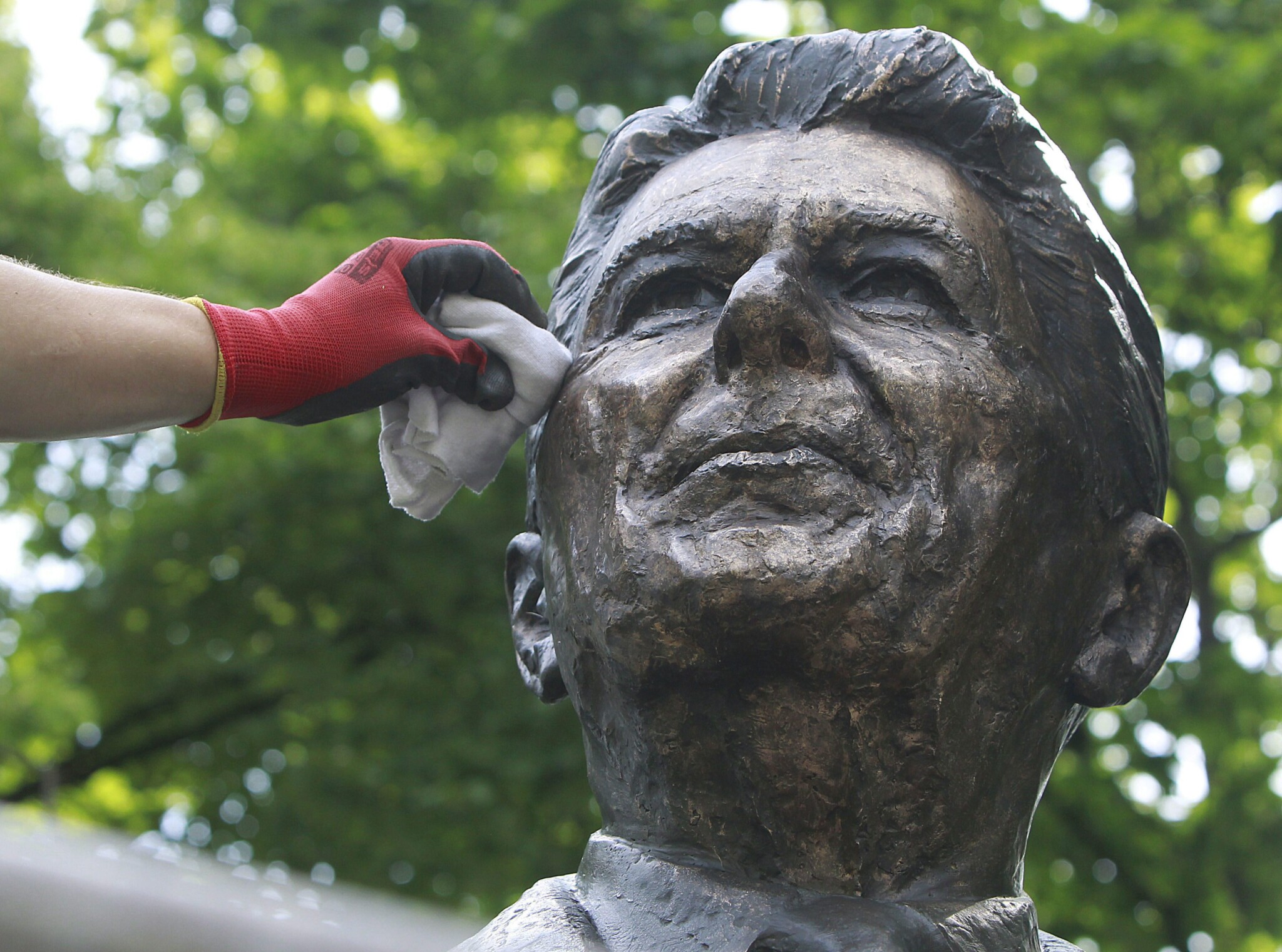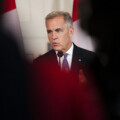Ronald Reagan has become a stand-in for something larger than the man himself. For many young conservatives, his name now evokes not the fall of the Berlin Wall or the economic renewal of the 1980s, but a bygone era of naïve optimism, libertarian economics, and soft-edged conservatism. The argument, increasingly common among younger conservative intellectuals and journalists, is that Reagan’s conservatism—cheerful, pluralistic, focused on free markets and limited government—was adequate for its time but has little to offer in ours.
After a decade of what one might call “wokeism,” these younger voices contend that the Right’s old guard was too passive, too liberal, too content to let the culture go to ruin so long as marginal tax rates fell and trade barriers came down. Their criticism, in essence, is that while progressives captured universities, the bureaucracy, and corporate boardrooms, conservatives wrongly obsessed over economic freedom and other materialistic abstractions. The result, they say, is the hollow victory of an efficient economy inside a demoralized culture.
You can see this intellectual and political shift everywhere. It divides generations (young versus old conservatives), ideologies (populist conservatives versus classical liberals), and temperaments (online activists versus policy wonks). Where Reagan once symbolized the moral self-confidence of the conservative movement, he now stands, for many, as a symbol of political weakness.
The emerging view is that the Reagan era is over. We need a new conservatism, say the young and restless—one that is less deferential to economic orthodoxy and less liberal on cultural matters. In their minds, the task is no longer to restore institutional neutrality but to wield the instruments of state power affirmatively; to defend a substantive moral vision rather than merely insist that the state remain neutral among competing ones.
The intellectual heroes of this worldview are less Reagan and Thatcher than Trump and Vance, less Hayek and Friedman than the post-liberal writers and online activists who see politics as an arena for cultural renewal rather than restraint. They think of themselves not as conservatives conserving, but as counter-revolutionaries rebuilding.
One can understand where they’re coming from. Many of these young conservatives have spent their formative years in environments where progressive orthodoxy is overwhelmingly dominant. Their appeals to pluralism and neutrality—once the default liberal norms of our society—have been met with hostility and intolerance. When you’ve been shouted down in class or threatened with workplace discipline for expressing a minority view, “live and let live” can sound like surrender.
There’s a deep psychological truth here: Those who experience power used against them naturally begin to dream of using it for themselves. And yet, this temptation—to answer illiberalism with illiberalism—has been the ruin of many movements throughout history.
So let me offer a defence of Reagan from his young conservative critics.
Start with the economic case. As I’ve argued elsewhere, it would be a serious mistake for conservatives to abandon or even subordinate their core economic ideas. The country’s biggest challenges—including many that animate the new Right—ultimately trace back to a decade of stagnating productivity and faltering growth. Rising housing costs, declining family formation, the collapse of civic life, and the general sense of malaise all stem from an economy that no longer produces the dynamism or opportunity it once did.
Reagan understood this. His revolution in tax and regulatory policy wasn’t just about GDP growth for its own sake. It was about moral renewal through economic vitality. A society of abundance, he believed, is better able to sustain generosity, optimism, and civic trust. Prolonged stagnation, by contrast, breeds zero-sum thinking, grievance, and resentment—the cultural mood that now defines our politics.
To put it plainly: A healthy culture requires a healthy economy. When the economic pie stops growing, politics becomes a battle over how to divide it. Boosting output and productivity isn’t, therefore, merely technocratic bookkeeping as some have derisively claimed. It’s a precondition for a society that believes in itself again.
That’s why the economy matters too much to cede to the Left. To imagine that we can heal the culture while neglecting the economy is to misunderstand both. The populist Right’s flirtation with different forms of government intervention may satisfy a hunger for action, but it risks repeating the same errors that caused stagnation in the first place.
Yet one senses that most young conservatives implicitly understand this. Their real objection isn’t actually Reagan’s tax cuts or his belief in free enterprise. What really grates them is his temperament—his happy-warrior disposition, his generous spirit, his belief that politics could be conducted with civility and good humour. In an era of polarized and performative politics, calm conviction looks like weakness.
But these were in fact signs of moral strength. Reagan’s liberalism—his insistence on human fallibility and individual freedom—wasn’t weakness. It was wisdom.
As one grows older and comes to terms with his own limitations, the allure of total certainty fades. You begin to realize, as Kant famously put it, that “out of the crooked timber of humanity no straight thing was ever made.” If no man is perfectly virtuous or wise, why would we entrust any man’s moral vision with the full powers of the state?
Reagan’s confidence in pluralism, in limited government, in the open society—all of it stemmed from a clear-eyed view of human imperfection. A state that claims the authority to impose virtue will soon impose vice. A government that claims to defend morality will soon define it.
The irony is that the new Right’s critique of liberal neutrality rests on an un-conservative faith in human power. It imagines that if only “our side” held the levers of state, the results would be good and just. But conservatives used to understand that such confidence is precisely what needs conserving against.

There’s one final reason for the rebellion against Reagan: classical liberalism can seem boring.
If you’re a young conservative entering politics or media today, the liberal-conservative vision of limited government and individual autonomy feels anticlimactic. It doesn’t offer the grandeur of a totalizing worldview or the moral drama of a culture war. It asks for humility when everything around you demands heroics.
But that’s exactly its virtue. The ideas of ordered liberty, limited government, and market freedom have endured not because they thrill the imagination but because they work. They evolved from centuries of trial and error—an accumulation of practical wisdom about how flawed human beings can coexist in freedom. Their moderation is their strength.
Liberal-conservative thought doesn’t promise utopia. It doesn’t produce a moral blueprint. And it doesn’t satisfy one’s search for transcendence. That may not stir the heart like a crusade, but it’s the only foundation on which a free society can rest.
To be conservative, in the truest sense, is to accept limits: on human knowledge, on human virtue, on political ambition. Reagan embodied this sensibility. He understood that government cannot make people moral but only free. The purpose of politics isn’t salvation but stewardship.
The new Right is right about one thing: Our culture is in trouble. The institutions that once transmitted common sense and common virtue have been captured by a new ideology of grievance and identity. I’ve spoken and written extensively, for instance, about the flaws of a structuralist understanding of history. Conservatives are justified in pushing back. But the manner of that pushback matters.
The danger is that in rejecting the excesses of the Left, conservatives come to mirror them in spirit. The impulse to “use power to fight back” may feel satisfying, but it risks forgetting that freedom, rightly ordered, is what allows virtue and community to flourish in the first place.
The New Right is still right to insist that conservatism cannot remain indifferent to the cultural and moral conditions that shape a free society. The excesses of identity politics—the tendency to see people as representatives of immutable groups rather than as individuals endowed with agency and responsibility—deserve to be confronted. But the most persuasive response is a fundamentally liberal one: Individuals, not groups, are the moral unit of society. What ultimately matters isn’t where one comes from but what one does with freedom.
That conviction lay at the heart of Reagan’s conservatism. It was rooted in a certain view of human nature: that we’re fallen but free, and that the work of politics is to build institutions that accentuate our better instincts and constrain our base impulses. It balanced moral purpose with institutional humility and freedom with responsibility.
As Irving Kristol once put it, we may offer only “two cheers for capitalism,” recognizing that markets alone cannot provide meaning or morality. But without them, the pursuit of meaning and morality soon becomes coercive. Economic freedom gives people not just prosperity but independence. It creates the conditions in which virtue can take root and in which a society can renew itself from the bottom up.
This, finally, is the enduring insight of Reaganism: Freedom itself—imperfect, pluralistic, and at times untidy—remains the surest expression of human dignity. Reagan trusted in particular that freedom, rightly ordered, could call forth the better angels of our nature. That conviction still ought to point the way for conservatism today.
Does Reagan's focus on economic freedom still hold relevance for today's cultural challenges?
Is the 'new Right's' desire to wield state power a departure from conservative principles?
Can a focus on 'ordered liberty' and 'limited government' truly address cultural malaise?












Comments (5)
This excellent defense of Ronald Reagan against the ahistorical and not fully informed critics of Reagan, is long overdue.
Younger people simply have no idea at all of the malaise and pessimism in the US in 1980, captured by then President Carter, who said, “America’s best years are behind us – our children will be worse off than us”.
There were frequent OpEds and learned articles being published in the elite media eg NYT, Atlantic Monthly, Wash Post, seriously analyzing WHEN the USSR would surpass the US to become the world hegemon.
In only 8 years, Reagan reinvigorated the entire US economy such that it became turbocharged.
And in 9 years due to his leadership, the communist system collapsed, in October 1989, as hundreds of millions sat entranced at the breaking down of the Berlin Wall.
And the collapse of the system that our “very best and brightest” (David Halberstam, NYT) had assured us, was going to displace the US.
More credit is due Ronald Reagan than other single individual (other Pope John Paul II and Thatcher played very important roles in their own right).
Maybe it is time for the Hob to sponsor a colloquium on the lasting legacy of Reagan, Thatcher and Karol Wojtyla.